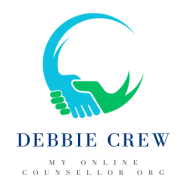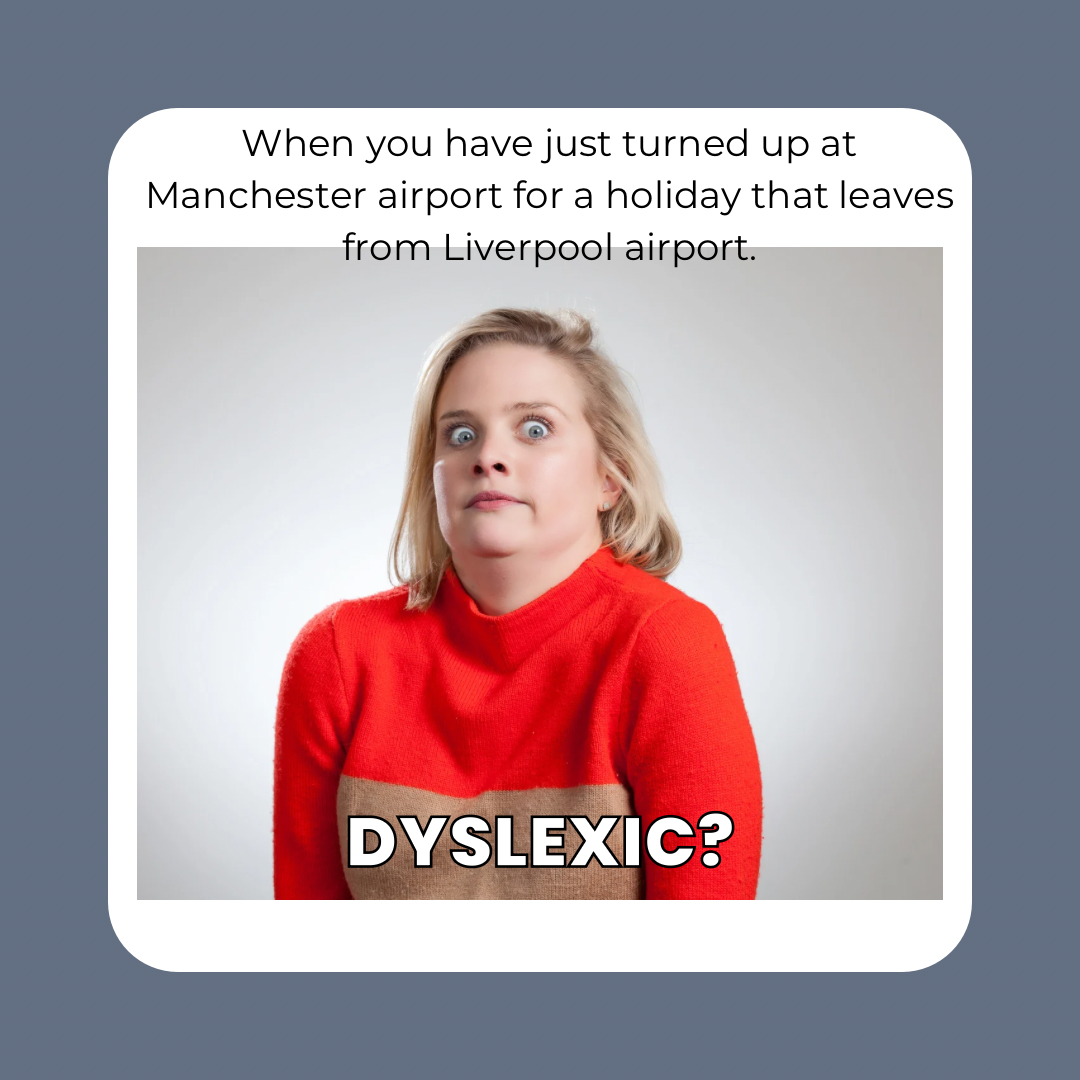The Trials and Tribulations of Being Dyslexic as a Counsellor (Helping Other People Have More Compassion… While Trying to Find My Glasses)
By Debbie, Counsellor, Human Being, and Spellcheck Survivor
Let me start by saying this: being dyslexic doesn’t mean you’re broken. It means your brain has its own dance steps—some elegant, some chaotic, and some that look suspiciously like a conga line into the wrong airport.
Take, for instance, the time I very sensibly booked a hotel to ease the stress of an early morning flight. What a responsible adult I am, I thought—until we arrived at Manchester Airport only to realise our flight was from Liverpool.
It would’ve been funny if it wasn’t… oh wait, no, it was funny. Eventually.
When You Mix Up Words, But Never Your Values
As a counsellor, my job is to hold space, listen deeply, and reflect back what clients may not yet be able to say. I can track complex emotions, spot subtle patterns in relational dynamics… but ask me to spell “conscientiousness” without Google and we’re in real trouble.
My dyslexia means I sometimes say or type the wrong thing, confuse names or dates, or get in a muddle over times. But it also means I think differently—and that’s my secret strength.
It’s this difference that helps me:
- Notice what isn’t being said
- Hold space for non-linear stories
- Sit with the messiness of being human
- Offer compassion to others (because I practise it daily on myself)
Laughter: The Best Proofreader
Here are just a few of the “oops-but-wow” moments dyslexia has given me over the years:
- Signed off an email with “Kind retards” instead of Kind regards. (Reader, I shrieked.)
- Told a client I’d booked a room at “The Doomed Room” instead of The Dome Room for our retreat.
- Turned up to a training a week early, fully prepped, and slightly smug.
- Wrote “Proud of your girth” in a message meant to encourage someone’s growth. They still laugh about it.
Each of these moments has been humbling—and hilarious. And each has taught me something precious: to hold my mistakes lightly and my humanity tightly.
Helping Others Have Compassion (Starts With Having It for Yourself)
What dyslexia has given me—apart from an aversion to forms and a suspicious relationship with autocorrect—is empathy. Real empathy. Not the kind that nods politely, but the kind that knows how it feels to feel not-quite-good-enough. The kind that says, “You don’t need to be perfect to be worthy.”
In therapy, people often carry deep shame about things they believe make them “less than”—mental health struggles, learning differences, trauma, identity, sexuality, neurodivergence. I sit with them and say, “You’re not alone. And none of these things make you unloveable.”
And I mean it—because I live it.
A Note to Fellow Neurospicy Souls
If you’re reading this and have your own version of “Manchester Airport,” know this:
* You’re not lazy
* You’re not stupid
* You’re not a problem to be fixed
You’re wired differently. And that wiring might just be the reason someone else feels safe enough to be themselves with you.
To the Compassionate Misfits, the Sensitive Rebels, the Ones Who Triple-Check Their Calendar…
Let’s laugh when we can, cry when we need to, and keep turning up—spelling mistakes, mismatched airports, and all.
Because the world doesn’t need perfect people. It needs real ones.
Debbie is a UK-based counsellor offering therapy for young people, individuals, and couples—with extra compassion for anyone who’s ever felt like the odd one out. She offers sessions online or in her garden dome in North Wales. Visit myonlinecounsellor.org to learn more.

